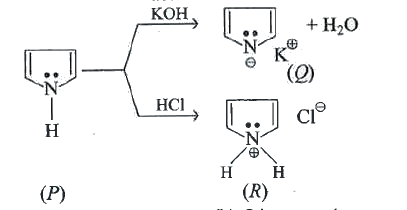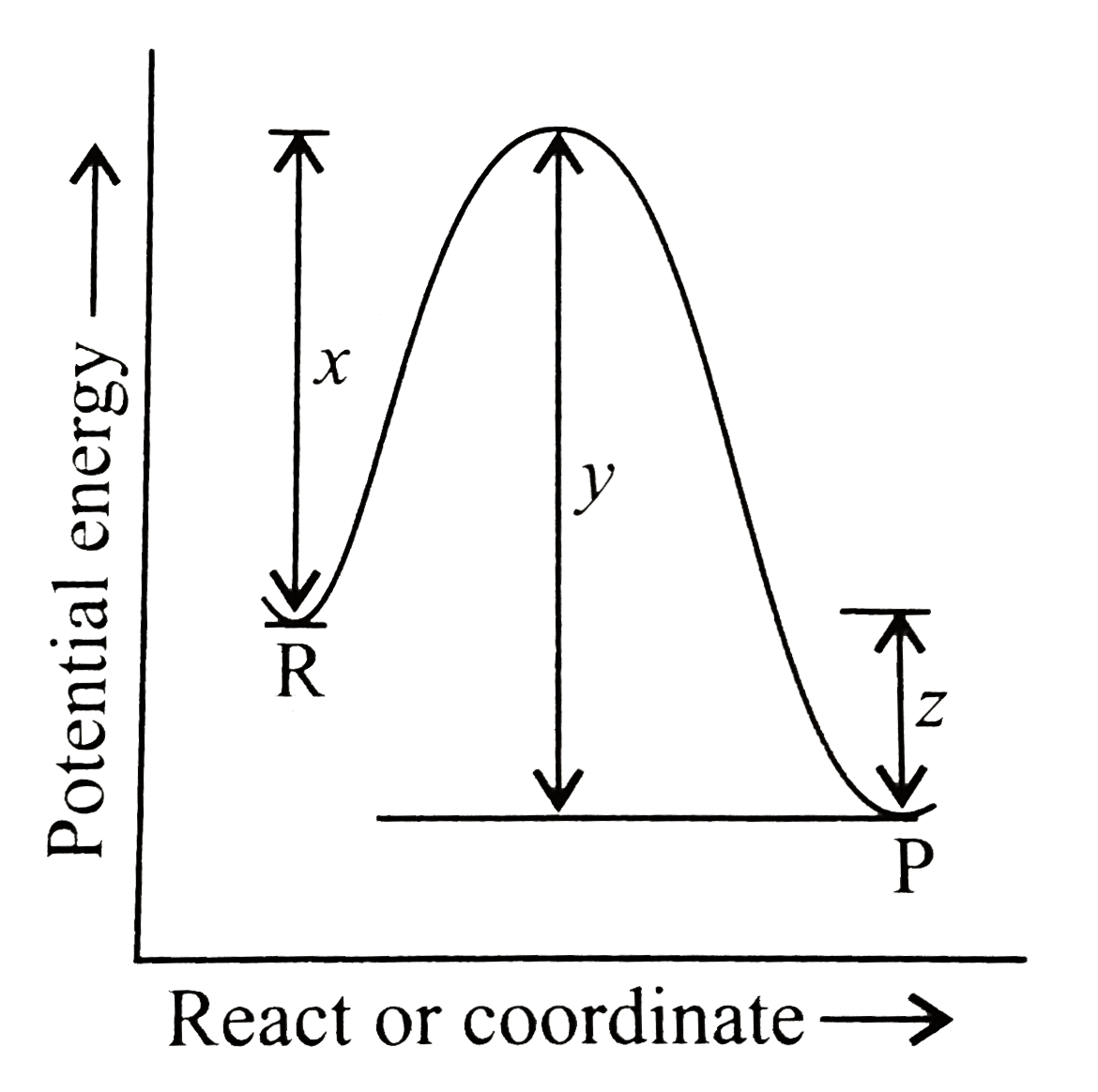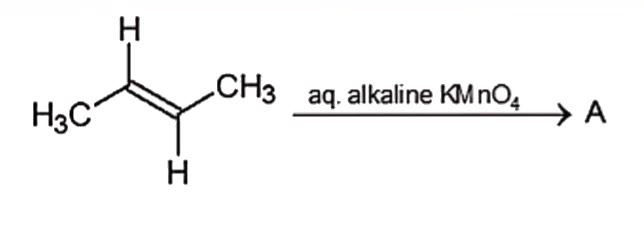The standard reaction Gibbs energy for a temperature T is given by
ΔrG∘=A−Bt
Where A and B are non-zero constants.
Which of the following is TRUE about this reaction ?
1.Exothermic if B<0
2.Exothermic if A>0andB<0
3.Endothermic if A<0andB>0
4.Endothermic if A>0
The correct Answer is:D
To solve the problem, we need to analyze the relationship between the standard reaction Gibbs energy (ΔG°) and the temperature (T) as given by the equation:
ΔrG∘=A−Bt
where A and B are non-zero constants.
Step 1: Understand the Gibbs Free Energy Equation
The Gibbs free energy change is related to enthalpy (ΔH) and entropy (ΔS) by the equation:
ΔG=ΔH−TΔS
For standard conditions, we can write:
ΔG∘=ΔH∘−TΔS∘
Step 2: Compare the Two Equations
From the given equation, we have:
ΔG∘=A−Bt
We can equate this to the standard Gibbs free energy equation:
A−Bt=ΔH∘−TΔS∘
Step 3: Rearranging the Equation
Rearranging gives us:
ΔH∘=A+TΔS∘−Bt
Step 4: Analyze Conditions for Spontaneity
For a spontaneous process, we need ΔG° to be less than zero:
A−Bt<0
This implies:
A<Bt
Step 5: Consider the Signs of A and B
1. If A > 0: This suggests that ΔH° could be positive (endothermic).
2. If A < 0: This suggests that ΔH° could be negative (exothermic).
Since we are looking for conditions under which the reaction is spontaneous, we need to ensure that the inequality A<Bt holds true.
Step 6: Conclusion
From the analysis, we conclude that:
- If A is positive (endothermic reaction), the reaction can still be spontaneous at high temperatures if B is positive and t is sufficiently large.
- If A is negative (exothermic reaction), the reaction is likely to be spontaneous at lower temperatures.
Thus, the true statement about the reaction is that it is endothermic if A>0.
Final Answer
The correct option is that the reaction is endothermic if A>0.
---
The Gibbs free energy change is related to enthalpy (ΔH) and entropy (ΔS) by the equation:
From the given equation, we have:
Rearranging gives us:
For a spontaneous process, we need ΔG° to be less than zero:
1. If A > 0: This suggests that ΔH° could be positive (endothermic).
2. If A < 0: This suggests that ΔH° could be negative (exothermic).
From the analysis, we conclude that:
- If A is negative (exothermic reaction), the reaction is likely to be spontaneous at lower temperatures.
The correct option is that the reaction is endothermic if A>0.
Topper's Solved these Questions
- JEE MAIN REVISION TEST 5 (2020)BOOK - VMC MODULES ENGLISHCHAPTER - JEE MAIN REVISION TEST 5 (2020)EXERCISE - CHEMISTRY (SECTION 2)
5 Videos
- JEE MAIN REVISION TEST 11 (2020) BOOK - VMC MODULES ENGLISHCHAPTER - JEE MAIN REVISION TEST 11 (2020) EXERCISE - CHEMISTRY (SECTION - 2)
5 Videos
- JEE MAIN REVISION TEST 8 (2020)BOOK - VMC MODULES ENGLISHCHAPTER - JEE MAIN REVISION TEST 8 (2020)EXERCISE - CHEMISTRY (SECTION 2)
5 Videos
Similar Questions
Knowledge Check
Which of the following is not true about a reversible reaction ?
A(a) The reaction does not proceed to completion.B(b) It cannot be influenced by catalystC(c) Number of moles of reactants and products is always equal.D(d) It can be attained only in a closed container.Which of the following reactions has zero activation energy?
A B
B C
C D
D
Which is true about following reactions ?
 AP is aromaticBQ is aromaticCR is antiaromaticDR is non-aromatic
AP is aromaticBQ is aromaticCR is antiaromaticDR is non-aromatic
Which of the following statements is true for the reaction given below?

View SolutionFor the chemical reaction X Y , the standard reaction Gibbs energy depends on temperature T (in K) as ΔrG0 ( in kJ mol−1 ) = 120−38T . The major component of the reaction mixture at T is
View SolutionA reaction is spontaneous at low temperature but non- spontaneous at high temperature. Which of the following is true for the reaction?
View SolutionFor the given reaction 2A(g)+ B(g) ⇔ C(g) , ΔH = x kJ which of the following favour the reactants ?
View SolutionThe potential energy diagram for a reaction R→P is given below. Delta H^(ɵ) of the reaction corresponds to the energy

View Solution

